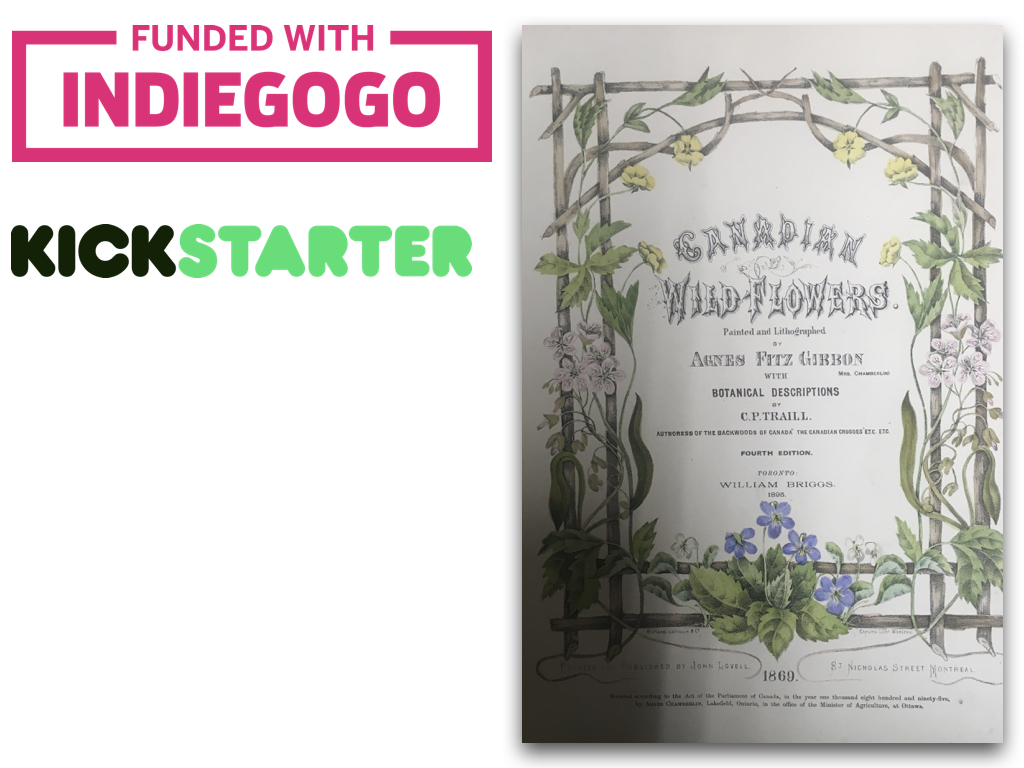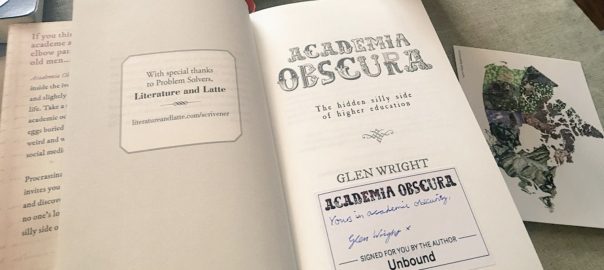A week or so ago, Glen Wright's very funny book, Academic Obscura, finally arrived in the mail. I learned about Glen from his twitter account, and donated in support of his book quite some time ago. Everyone who has ever done research should read Glen's book!
I'm incredibly grateful to the people that reached unexpectedly deep into their pockets: @dawnbazely @cernotik @ElyseIreland @afranklynmiller @NevilleMorley pic.twitter.com/Grh9IhTI0Y
— Glen Wright (@MarinePolicy) December 1, 2017
I learned about crowdfunding when I was director of IRIS, York's now closed Institute for Research and Innovation in Sustainability. At IRIS, I worked with students, staff and faculty from Schulich Business School, who introduced me to the concepts like microfinance and corporate social responsibility, which play into sustainability research, scholarship and action research.
At IRIS, we crowdfunded several sustainability initiatives. Since they were launched, I have enjoyed supporting projects on Indiegogo, Kickstarter and other crowdfunding platforms, including some specifically for science. Only one project, on Kickstarter, was what I would call fraudulent. Some projects that I backed failed, while others took years to come to fruition. And, that's fine with me. Crowdfunding involves risks, and you're betting on projects. It is NOT meant to be an online shopping experience, and shouldn't be confused with Etsy.
I've supported science education, and equity, diversity and inclusivity (EDI) projects through crowdfunding. I first learned about Elly Zupko, this year's Ada Lovelace Day speaker, through her Kickstarter project, a t-shirt with women in STEM all over it. Elly subsequently launched a non-profit supporting various EDI projects.
When Sapna Sharma decided to take action to support Syrian refugees arriving in Toronto, she founded the SEEDS at YorkU project. Those of who joined to help her, crowdfunded from our colleagues.
Crowdfunding via various online platforms is a way to do microphilanthropy and to be a mini-grantmaker. But, it is not a new idea: Agnes Fitz Gibbon and Catharine Parr Traill crowdfunded their iconic 1869 book, Wild Flowers of Canada. Also, while crowdfunding is a great way to support colleagues, students and cool projects, it is no substitute for proper government funding for research and development.


